|
Books Should Be Free Loyal Books Free Public Domain Audiobooks & eBook Downloads |
|
|
Books Should Be Free Loyal Books Free Public Domain Audiobooks & eBook Downloads |
|
Non-fiction |
|---|
|
Book type:
Sort by:
View by:
|
By: Unknown | |
|---|---|
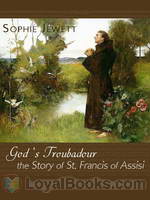 God's Troubadour, The Story of St. Francis of Assisi
God's Troubadour, The Story of St. Francis of Assisi
Francis, a young Italian boy, is a merchant’s son who is enthralled by the troubadour songs and tales of knights that his father brings back from his travels. He decides to become a knight, but after seeing the poor and suffering in the tragedies of war, he decides to give away all of his worldly possessions and become a troubadour for God. | |
By: Anonymous | |
|---|---|
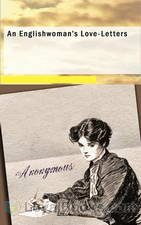 An Englishwoman's Love-Letters
An Englishwoman's Love-Letters
It need hardly be said that the woman by whom these letter were written had no thought that they would be read by anyone but the person to whom they were addressed. But a request, conveyed under circumstances which the writer herself would have regarded as all-commanding, urges that they should now be given to the world; and, so far as is possible with a due regard to the claims of privacy, what is here printed presents the letters as they were first written in their complete form and sequence. From book explaination | |
By: Unknown | |
|---|---|
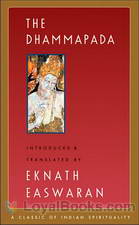 The Dhammapada
The Dhammapada
The Dhammapada is is a Buddhist scripture, containing 423 verses in 26 categories. According to tradition, these are verses spoken by the Buddha on various occasions, most of which deal with ethics. It is is considered one of the most important pieces of Theravada literature. Despite this, the Dhammapada is read by many Mahayana Buddhists and remains a very popular text across all schools of Buddhism. – Excerpted from Wikipedia | |
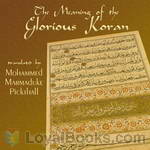 The Meaning of the Glorious Koran
The Meaning of the Glorious Koran
The Koran (Qur’an) is regarded by Muslims as the word of God (Allah) as revealed to the prophet Muhammad. It is divided into 114 chapters (surahs), arranged roughly by length. This version, The Meaning of the Glorious Koran, is a widely used English translation of the Koran by a Muslim Englishman. Many Muslims, however, including Pickthall, believe that true translations of the Koran from the original Arabic are impossible, and see translations into other languages only as useful interpretations. | |
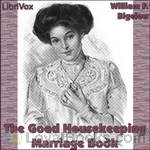 The Good Housekeeping Marriage Book
The Good Housekeeping Marriage Book
A collection of articles from Good Housekeeping magazine, The Good Housekeeping Marriage Book focuses on the subject of marriage. With instructions and advice from courtship to raising children, this collection aims to assist those with questions and concerns surrounding marriage and the ensuing relationship. Published in 1938. | |
By: Various | |
|---|---|
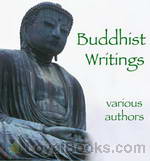 Buddhist Writings
Buddhist Writings
An anthology of Buddhist scriptures, appropriate as an introduction to its vast literature, or as a sampler for those who want to better understand Buddhism. The selections in this anthology are primarily from the Theravada school of Buddhism. | |
By: Mikhail Bakunin (1814-1876) | |
|---|---|
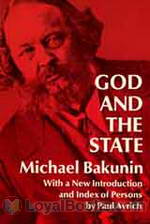 God and the State
God and the State
Bakunin’s most famous work, published in various lengths, this version is the most complete form of the work published hitherto. Originally titled “Dieu et l’état”, Bakunin intended it to be part of the second portion to a larger work named “The Knouto-Germanic Empire and the Social Revolution” (Knouto-Germanic Empire is in reference to a treaty betwixt Russia and Germany at the time), but the work was never completed. (from book introduction) | |
By: Various | |
|---|---|
 U.S. Historical Documents
U.S. Historical Documents
The Articles of Confederation: On November 15th, 1777 The Articles of Confederation became the first constitution of the United States, though not yet ratified by the thirteen original colonies. Ratification of the Articles took place almost three and a half years later on March 1st, 1781. The purpose of the articles was to create a confederation of sovereign states with a weak central government; thus allowing state governments to wield most of the power. It wasn’t long before the need for a stronger federal government was realized which led to the Articles being replaced by the United States Constitution... | |
By: Anonymous | |
|---|---|
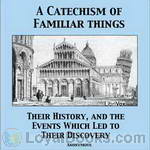 A Catechism of Familiar Things; Their History, and the Events Which Led to Their Discovery
A Catechism of Familiar Things; Their History, and the Events Which Led to Their Discovery
This book, a reprint of a successful English publication, has been so enlarged as to be to all intents and purposes new. It has been carefully revised by a Reverend gentleman, who for some time filled the chair of Physics and Chemistry in one of our colleges. Recent inventions and improvements are described in a simple, popular style, so as to be easily understood by all, and short notices are given of prominent inventors and scientists. The paragraphs relating to doctrinal matters conform in every respect to the teachings of the Church... | |
By: Various | |
|---|---|
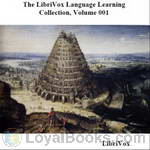 Language Learning Collection
Language Learning Collection
This collection is part of an initiative to create a language learning resource. The Language Learning Collections contain readings from various language learning books, grammars, primers, phrasebooks, dictionaries, readers and even other works which contain information on various languages, recount experiences of language learning and encountering new languages or provide guides for correct pronunciation, writing or discourse in a language. These works could describe English or any other language whatsoever, from Latin to Sumerian, Chinese to Wampanoag, Esperanto to Swahili (etc... | |
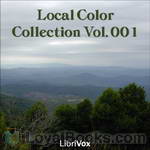 Local Color Collection
Local Color Collection
In this celebration of diversity, learn about the myriad histories and cultures behind our volunteers. | |
By: Unknown | |
|---|---|
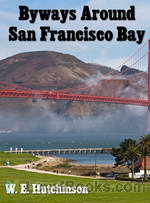 Byways Around San Francisco Bay
Byways Around San Francisco Bay
California, the land of sunshine and roses, with its genial climate, its skies as blue as the far-famed skies of Venice, and its pure, life-giving air, invites the lover of nature to take long tramps over hill and dale, mountain and valley, and to search out new trails in the rugged mountains. (Quote from section 2: Brook and Waterfall). | |
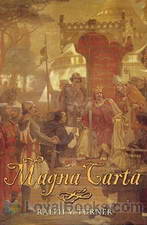 Magna Carta
Magna Carta
The original document is in Latin so this can only be a fairly rough approximation of the actual content. The text used is the first version in the Gutenberg collection. – Magna Carta is the most significant early influence on the long historical process that has led to the rule of constitutional law today. Magna Carta was originally created because of disagreements between the Pope, King John and his English barons over the rights of the King. Magna Carta required the king to renounce certain rights and respect certain legal procedures and to accept that the will of the king could be bound by law. | |
 The Ideal Bartender
The Ideal Bartender
Tom Bullock was a well-known bartender at the St. Louis Country Club. His skills as a bartender were so remarkable that a libel suit hinged on the excellence of his drinks. In The Ideal Bartender, Tom collects some of his best known beverage recipes. | |
By: Anonymous | |
|---|---|
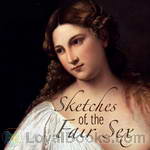 Sketches Of The Fair Sex
Sketches Of The Fair Sex
Sketches of the fair sex, in all parts of the world. To which are added rules for determining the precise figure, the degree of beauty, the habits, and the age of women, notwithstanding the aids and disguise of dress. It is our design to present a pleasing and interesting miscellany, which will serve to beguile the leisure hour, and will at the same time couple instruction with amusement. We have used but little method in the arrangement: Choosing rather to furnish the reader with a rich profusion... | |
By: Unknown | |
|---|---|
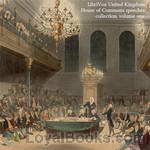 United Kingdom House of Commons Speeches Collection
United Kingdom House of Commons Speeches Collection
This collection comprises recordings of 17 historic speeches given to the UK House of Commons between 1628 and 1956. Readings are of speeches origninally given by parliamentarians including Oliver Cromwell, Edmund Burke, William Wilberforce, William Gladstone, Keir Hardie, Winston Churchill and Aneurin Bevan. | |
By: Various | |
|---|---|
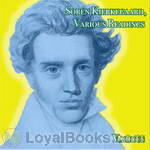 Soren Kierkegaard, Various Readings
Soren Kierkegaard, Various Readings
The writings listed here represent books about Soren Kierkegaard. A fragment of his work, On the Dedication to "That Single Individual", has made it to the public domain. Who was Soren Kierkegaard? He was a Danish philosopher and religious author; b. Copenhagen May 6, 1813; d. there Nov. 11, 1855. His father, Michael, a clothing merchant, once cursed God when he was young. This one incident caused him so much distress that it affected him with a deep melancholy, which he transferred to poor Soren... | |
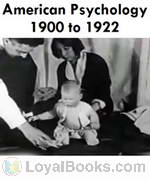 American Psychology 1900-1922
American Psychology 1900-1922
This is the first of what is intended to be three projects featuring journal articles which chart the development of psychology as an academic discipline in the United States during the twentieth century. This first collection begins with an appraisal of functionalism by William James and takes in: early contributions to educational psychology; works of early feminist psychologists; discussions of behaviourism and pragmatism. Also included is Watson and Rayner's famous 1920 "Little Albert" study. | |
By: Anonymous | |
|---|---|
 The American Housewife
The American Housewife
This cookbook and reference guide leads the American Housewife through how to make everything from Meat to Common Drinks, as well as helpful tips and tricks for any housewife! Also included in this fine text are sections on Cooking for The Sick, and how to make your own: Essences, Perfumes, Dyes and Soaps. This work also features an extensive section on The Art of Carving-Which covers anything you might need to carve! | |
By: Unknown | |
|---|---|
 The First Book of Adam and Eve
The First Book of Adam and Eve
The Conflict of Adam and Eve with Satan is a Christian pseudepigraphical work found in Ge’ez, translated from an Arabic original and thought to date from the 5th or 6th century AD. It was first translated from the Ethiopic version into German by August Dillmann. It was first translated into English by S. C. Malan from the German of Ernest Trumpp. The first half of Malan’s translation is included as the “First Book of Adam and Eve” and the “Second Book of Adam and Eve” in The Lost Books of the Bible and the Forgotten Books of Eden... | |
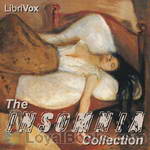 Insomnia Collection
Insomnia Collection
Soporific dullness is in the ear of the listener, and what’s tedium incarnate to one person will be another person’s passion and delight. However, it is hoped that at least one from the range of topics here presented will lull the busy mind to a state of sweet sleep. Introduction by Cori Samuel. | |
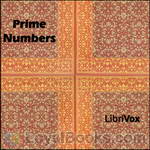 Prime Numbers
Prime Numbers
A recording of the first 2000 prime numbers (2-17389). Recommended listening for math fanatics and insomniacs! | |
By: The Venerable Bede (673-735) | |
|---|---|
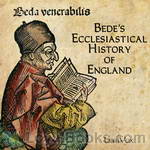 Ecclesiastical History of England
Ecclesiastical History of England
Bede's Ecclesiastical History of England is a work in Latin by Bede on the history of the Christian Churches in England, and of England generally; its main focus is on the conflict between Roman and Celtic Christianity. It is considered to be one of the most important original references on Anglo-Saxon history. It is believed to have been completed in 731, when Bede was approximately 59 years old. Divided into five books, it covers the history of England, ecclesiastical and political, from the time of Julius Caesar to the date of its completion (731)... | |
By: Anonymous | |
|---|---|
 English as She is Wrote
English as She is Wrote
"...Showing Curious ways in which the English Language may be made to convey Ideas or obscure them." A collection of unintentionally humorous uses of the English language. Sections of the work: How she is wrote by the Inaccurate, By Advertisers and on Sign-boards, For Epitaphs, By Correspondents, By the Effusive, How she can be oddly wrote, and By the Untutored. | |
By: Genevieve Behrend (1881-1960) | |
|---|---|
 Your Invisible Power
Your Invisible Power
Genevieve Behrend was a teacher of Mental Science, a New Thought discipline created by Thomas Troward (1847- 1916). Your Invisible Power, published in 1921, is her first and most famous book. It is a guide to the use of visualization and other mental processes in life enhancement and the achievement of personal goals. | |
By: Unknown | |
|---|---|
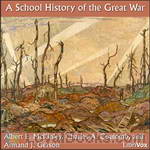 A School History of the Great War
A School History of the Great War
A brief history of The Great War (World War I) designed for students in grades seven and eight. Special emphasis on European history leading up to the war, reasons and events leading to America’s eventual entering the war, and possible ramifications of the war for future generations. | |
 The Psalms and Odes of Solomon
The Psalms and Odes of Solomon
One of the Pseudepigrapha, the Psalms of Solomon is a group of eighteen psalms (religious songs or poems) that are not part of any scriptural canon (they are, however, found in copies of the Peshitta). The Psalms of Solomon were referenced in Early Christian writings, but lost to modern scholars until a Greek manuscript was rediscovered in the 17th century. Politically, the Psalms of Solomon are anti-Maccabee, and some psalms in the collection show a clear awareness of the Roman conquest of Jerusalem under Pompey in 63 BCE, metaphorically treating him as a dragon who had been sent by God to punish the Maccabees... | |
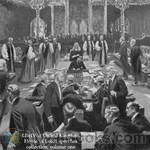 United Kingdom House of Lords Speeches Collection
United Kingdom House of Lords Speeches Collection
This collection comprises recordings of seven historic speeches given to the UK House of Lords between 1641 and 1945. Readings are of speeches origninally given by the 1st Earl of Strafford (Thomas Wentworth), the 1st Earl of Chatham (William Pitt the Elder), the 6th Baron Byron (the poet Lord Byron), the 1st Duke of Wellington (Arthur Wellesley), the 3rd Earl of Lucan (George Lord Bingham) and the 3rd Earl Russell (the philosopher Bertrand Russell). | |
By: Anonymous | |
|---|---|
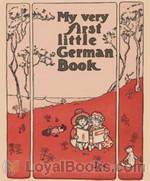 My Very First Little German Book
My Very First Little German Book
An adorable picture book with 29 little lessons in German. Learn many simple and useful phrases, such as "How big the sea is!" and "Have you ever been to the farm?" The English parts of the book are read by Kara, and the German parts by Elli. | |
By: David Friedrich Strauss (1808-1874) | |
|---|---|
 The Life of Jesus Critically Examined
The Life of Jesus Critically Examined
Strauss was an early pioneer in the ongoing 'Quest of the Historical Jesus' held amongst New Testament scholars, and his Life of Jesus is one of the few landmarks in the field. The first edition of Strauss' book was published in Germany in 1835 when he was only 27 years old, and which by 1840 had gone through four editions. He focused his attention on battling two theological fronts which were current at the time - the traditional Orthodox who believed the miracles in the Gospels were to be taken as literal, yet supernatural, history; and the Rationalists, who believed that the Gospel miracles were all true but could be explained by natural and purely physical causes... | |
By: Various | |
|---|---|
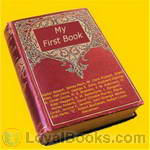 My First Book
My First Book
This is not a children’s book, as may be supposed from the title, but a collection of essays first published in The Idler magazine, in which over twenty well-known writers describe with characteristic style and humour their experiences in producing their first book… and getting it published. The book is profusely illustrated, not only with portraits of the authors, but also with scenes and illustrations from the books discussed. Authors include Jerome K. Jerome, R. L. Stevenson, Bret Harte, Rider Haggard, Rudyard Kipling, Sir Arthur Conan Doyle and Mary Braddon... | |
By: Sigmund Freud (1856-1939) | |
|---|---|
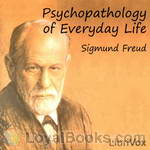 Psychopathology of Everyday Life
Psychopathology of Everyday Life
Professor Freud developed his system of psychoanalysis while studying the so-called borderline cases of mental diseases, such as hysteria and compulsion neurosis. By discarding the old methods of treatment and strictly applying himself to a study of the patient's life he discovered that the hitherto puzzling symptoms had a definite meaning, and that there was nothing arbitrary in any morbid manifestation. Psychoanalysis always showed that they referred to some definite problem or conflict of the person concerned... | |
By: Aristotle (384 BC - 322 BC) | |
|---|---|
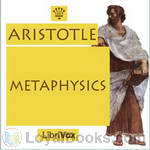 Metaphysics
Metaphysics
Metaphysics is essentially a reconciliation of Plato’s theory of Forms that Aristotle acquired at the Academy in Athens, with the view of the world given by common sense and the observations of the natural sciences. According to Plato, the real nature of things is eternal and unchangeable. However, the world we observe around us is constantly and perpetually changing. Aristotle’s genius was to reconcile these two apparently contradictory views of the world. The result is a synthesis of the naturalism of empirical science, and the mysticism of Plato, that informed the Western intellectual tradition for more than two thousand years... | |
By: Wallace D. Wattles (1860-1911) | |
|---|---|
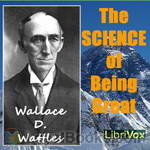 The Science of Being Great
The Science of Being Great
The Science of Being Great is the second book of Wattles' triology. In this volume he argues that the power of thought and positive self-esteem is the only true measure of a person's greatness. | |
By: Unknown | |
|---|---|
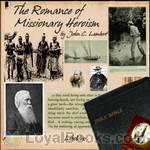 The Romance of Missionary Heroism
The Romance of Missionary Heroism
The title page gives this book the subtitle, “True stories of the intrepid bravery and stirring adventures of missionaries with uncivilized man, wild beasts, and the forces of nature in all parts of the world.” The thrilling accounts in this collection include stories of Jacob Chamberlain’s medical ministry in India, the dangers faced by Alexander Mackay in Uganda, James Chalmers’ work among the headhunters of New Guinea, John Paton’s mission to the South Sea cannibals, and the Hawaiian queen Kapiolani’s challenge to the gods of the volcano... | |
By: Friedrich Nietzsche | |
|---|---|
 Ecce Homo
Ecce Homo
The philosopher Friedrich Nietzsche’s autobiography, Ecce Homo, was the last prose work that he wrote before his illness in 1889. Coming at the end of an extraordinarily productive year in which he had produced The Twilight of the Idols and The Antichrist, Nietzsche shuns any pretense at modesty with chapter titles include “Why I am so Wise”, “Why I am so Clever” and “Why I Write Such Excellent Books”. His translator Anthony M. Ludovici states, Ecce Homo “is not only a coping-stone... | |
By: Andrew Murray (1828-1917) | |
|---|---|
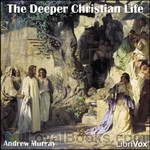 The Deeper Christian Life
The Deeper Christian Life
If you were put on trial for being a Christian, would you be convicted? Christians have asked themselves this question, or ones like it, for millennia. In his book, The Deeper Christian Life, Andrew Murray helps us come to grips with those nagging insecurities in our Christian walk. A shallow relationship with God leads us down a road of doubt and insecurities. Can I be forgiven? How can I forgive? Murray tells us that we can go deeper in our relationship with God, and with that deeper relationship comes growing confidence and joy in the gospel. That joy springs from the knowledge of God's grace in forgiving us, and enables us to extend that grace to others in our lives. | |
By: Herbert J. Hall (1870-1923) | |
|---|---|
 The Untroubled Mind
The Untroubled Mind
A very wise physician has said that “every illness has two parts—what it is, and what the patient thinks about it.” What the patient thinks about it is often more important and more troublesome than the real disease. What the patient thinks of life, what life means to him is also of great importance and may be the bar that shuts out all real health and happiness. The following pages are devoted to certain ideals of life which I would like to give to my patients, the long-time patients who have especially fallen to my lot. | |
By: Unknown | |
|---|---|
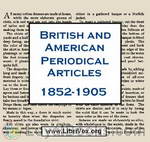 British & American Periodical Articles 1852-1905
British & American Periodical Articles 1852-1905
A dozen assorted articles from British and American periodicals, including The Atlantic Monthly, Punch, The Chicago Record-Herald, Chambers’s Edinburgh Journal, Lippincott’s Magazine of Popular Literature and Science, The Library, St. Nicholas, American Missionary, The Great Events by Famous Historians, and The Continental Monthly. | |
By: Plato (424/423 BC - 348/347 BC) | |
|---|---|
 Apology
Apology
The Apology of Socrates is Plato's version of the speech given by Socrates as he unsuccessfully defended himself in 399 BC against the charges of "corrupting the young, and by not believing in the gods in whom the city believes, but in other daimonia that are novel" (24b). "Apology" here has its earlier meaning (now usually expressed by the word "apologia") of speaking in defense of a cause or of one's beliefs or actions (from the Ancient Greek ἀπολογία). | |
By: Calista McCabe Courtenay | |
|---|---|
 George Washington
George Washington
In this biography for young people, Calista McCabe Courtenay takes the reader from George Washington the surveyor to his early military career, first as a colonel in the Virgina militia and then as a member of General Braddock'a staff during the French and Indian War. He later commanded the Virginia forces before joining the First Continental Congress. Much of the book is devoted to his campaigns during the American Revolution. At the end, we see him as President for two terms. | |
By: Various | |
|---|---|
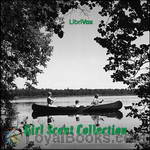 Girl Scout Collection
Girl Scout Collection
These articles, pamphlets, and stories relating to the Girls Scouts of America touch on the history, activities, ideals, and traditions of this remarkable girls' organization. Though some of the articles appear redundant, they were selected to represent a contemporary view spanning five years of the organization's early popularity (1917-1921). Of significance are the detailed descriptions of Girl Scout involvement in war work during what is now known as World War I. Girl Scouts were prepared through their training for merit badges to be independent, resourceful, reliable, and helpful... | |
By: Unknown | |
|---|---|
 Pennsylvania Dutch Cooking
Pennsylvania Dutch Cooking
| |
By: Various | |
|---|---|
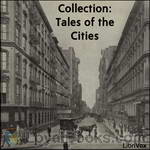 Collection: Tales of the Cities
Collection: Tales of the Cities
This is a collection of city stories, fiction or non-fiction, in English and published before 1923. Contributions have been chosen by the reader himself. | |
By: Charles A. Siringo (1855-1928) | |
|---|---|
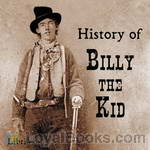 History of Billy the Kid
History of Billy the Kid
A cowboy outlaw whose youthful daring has never been equalled in the annals of criminal history.When a bullet pierced his heart he was less than twenty-two years of age, and had killed twenty-one men, Indians not included.The author feels that he is capable of writing a true and unvarnished history of "Billy the Kid," as he was personally acquainted with him, and assisted in his capture, by furnishing Sheriff Pat Garrett with three of his fighting cowboys--Jas. H. East, Lee Hall and Lon Chambers... | |
By: Immanuel Kant (1724-1804) | |
|---|---|
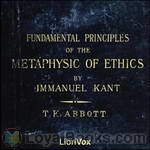 Fundamental Principles of the Metaphysic of Morals
Fundamental Principles of the Metaphysic of Morals
The Fundamental Principles of the Metaphysic of Morals, also known as The Groundwork of the Metaphysics of Morals or Foundations of the Metaphysics of Morals or Grounding of the Metaphysics of Morals, is Immanuel Kant's first contribution to moral philosophy. It argues for an a priori basis for morality. Where the Critique of Pure Reason laid out Kant's metaphysical and epistemological ideas, this relatively short, primarily meta-ethical, work was intended to outline and define the concepts and arguments shaping his future work The Metaphysics of Morals. However, the latter work is much less readable than the Fundamental Principles. | |
By: the Three Initiates (1908) | |
|---|---|
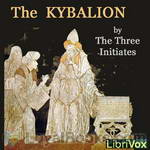 The Kybalion
The Kybalion
The Kybalion: Hermetic Philosophy is a 1908 book claiming to be the essence of the teachings of Hermes Trismegistus, published anonymously by a group or person under the pseudonym of “the Three Initiates”. (Introduction by Wikipedia) | |
By: Aaron Smith (?-1862) | |
|---|---|
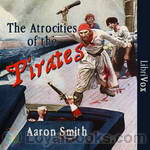 The Atrocities of the Pirates
The Atrocities of the Pirates
In 1822, Aaron Smith, a young English seaman, was taken captive by Cuban pirates when his ship was boarded en route from Jamaica to England. Forced to work as a navigator and as a member of pirate boarding parties, he witnessed unspeakable acts of murder and torture. Befriended by a young Cuban woman, he managed to escape with his life, but was arrested as a pirate in Havana and sent back to England in chains. There, he found himself on trial for his life at the Old Bailey courthouse—with the attorney general himself leading the prosecution. Smith's dramatic account of his personal experience is a brutally honest, unromanticized [sic] look at piracy in the 19th century. | |
By: Theodore Roosevelt (1858-1919) | |
|---|---|
 The Naval War of 1812
The Naval War of 1812
Somewhat detailed history of naval engagements between the United States and England during the War of 1812, from a decidely American perspective. Completed by the author as a young man at age 24. After 120 years, it remains a standard study of the war. | |
By: Johnannes Jorgensen (1866-1956) | |
|---|---|
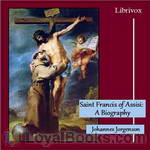 Saint Francis of Assisi: A Biography
Saint Francis of Assisi: A Biography
Born to a prosperous cloth merchant of Assisi, Francis (1182-1226) lived the typically high-spirited life of a wealthy young man of his day, which included fighting as a soldier. In 1205, while away at war, he experienced a vision that beckoned him return to Assisi, where he soon lost his taste for the worldly life and began to live a life of evangelical poverty in imitation of Jesus Christ. He embarked upon a pilgrimage to Rome, where he begged for alms alongside the poor at St. Peter's Basilica... | |
By: St. Benedict of Nursia (ca. 480-547) | |
|---|---|
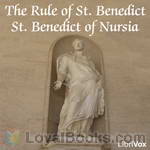 The Rule of St. Benedict
The Rule of St. Benedict
The Rule of Saint Benedict (Regula Benedicti) is a book of precepts written by St. Benedict of Nursia for monks living communally under the authority of an abbot. Since about the 7th century it has also been adopted by communities of women. During the 1500 years of its existence, it has become the leading guide in Western Christianity for monastic living in community. The spirit of St Benedict's Rule is summed up in the motto of the Benedictine Confederation: pax ("peace") and the traditional ora et labora ("pray and work").(Introduction from Wikipedia) | |
By: J. C. Ryle (1816-1900) | |
|---|---|
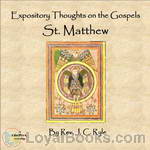 Expository Thoughts on the Gospels - St. Matthew
Expository Thoughts on the Gospels - St. Matthew
“Expository Thoughts” divides the Gospels into sections of about twelve verses each, from which J. C. Ryle selects two or three prominent points to dwell on and bring to the reader’s attention. In Ryle’s day, there were many detailed commentaries and expositions on scripture. In writing these “Expository Thoughts”, Ryle aimed to offer a resource to the laity for use in family prayers, as an aid to those who visit the sick and desire a proper book to read on such occasions, and for private devotions for those whose callings and engagements make it impossible for them to read large commentaries... | |
By: Anonymous | |
|---|---|
 The Cloud of Unknowing
The Cloud of Unknowing
The Cloud of Unknowing (Middle English: The Cloude of Unknowyng) is an anonymous work of Christian mysticism written in Middle English in the latter half of the 14th century. The text is a spiritual guide on contemplative prayer in the late Middle Ages. The book counsels a young student to seek God, not through knowledge and intellection (faculty of the human mind), but through intense contemplation, motivated by love, and stripped of all thought. This is brought about by putting all thoughts and desires under a "cloud of forgetting", and thereby piercing God's cloud of unknowing with a "dart of longing love" from the heart... | |
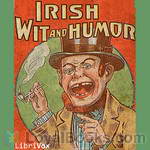 Irish Wit and Humor
Irish Wit and Humor
Excerpted anecdotes from the biographies of Swift, Curran, O'Leary and O'Connell, relating humorous snippets of politics in 18th and 19th century Ireland. For some these may be poignant in addition to being humorous and for others they may be humorous in addition to being poignant. ( | |
By: Jewish Publication Society of America (1917) | |
|---|---|
 Genesis (JPSA)
Genesis (JPSA)
The first book of the Pentateuch - Genesis. Presented according to weekly parshah.Praised are You, Adonai, Our G-d, ruler of the Universe, who has made us holy with commandments and commanded us to engage in the study of Torah. | |
By: Jacob Abbott (1803-1879) | |
|---|---|
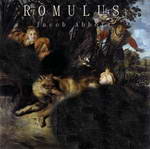 Romulus
Romulus
Jacob Abbott wrote many historical books for children. He was careful to ensure historical accuracy, and as he said himself in the preface to this book "Whatever of interest ... these stories may possess is due solely to the facts themselves which are recorded in them, and to their being brought together in a plain, simple, and connected narrative."This is the story of Romulus, the founding of Rome and the early years of its history, written in a way both readable and enjoyable for adults and children alike. | |
By: Thomas Whittaker (1856-1935) | |
|---|---|
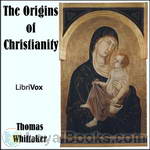 The Origins of Christianity
The Origins of Christianity
The full title of this book is The Origins of Christianity with an Outline of Van Manen’s Analysis of The Pauline Literature. Willem Christiaan van Manen (1842-1905) was a Dutch theologian. The vast majority of van Manen’s radical criticism of the New Testament and Christian origins has never been translated into English.In this book, Thomas Whittaker outlines the arguments of van Manen for an English-speaking audience. Van Manen’s work is not now generally known, but his views obtained notoriety by the articles and books that he wrote, in which he maintained that none of the Epistles that bear the Apostle Paul’s name were in fact written by him... | |
By: Thomas Troward (1847-1916) | |
|---|---|
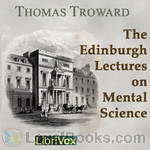 The Edinburgh Lectures on Mental Science
The Edinburgh Lectures on Mental Science
Thomas Troward was a divisional Judge in British-administered India. His avocation was the study of comparative religion. Influences on his thinking, as well as his later writing, included the teachings of Christ, Islam, Hinduism, and Buddhism. After his retirement from the judiciary in 1896, Troward set out to apply logic and a judicial weighing of evidence in the study of matters of cause and effect. The philosopher William James characterized Troward’s Edinburgh Lectures on Mental Science as "far and away the ablest statement of philosophy I have met, beautiful in its sustained clearness of thought and style, a really classic statement... | |
By: Owen Wister | |
|---|---|
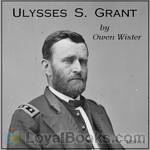 Ulysses S. Grant
Ulysses S. Grant
Ulysses S. Grant was the great hero (for the North) in the Civil War and the 18th President of the United States. This short biography is only 145 pages in a little pamphlet size. The author is famous for his stories of the Old West, but he also wrote a substantial body of nonfiction literature. | |
By: Captain John Smith (1580-1631) | |
|---|---|
 A Description of New England
A Description of New England
Captain John Smith (c. January 1580 – June 21, 1631) Admiral of New England was an English soldier, explorer, and author. He was knighted for his services to Sigismund Bathory, Prince of Transylvania. He is remembered for his role in establishing the first permanent English settlement in North America at Jamestown, Virginia, and his brief association with the Virginia Indian girl Pocahontas during an altercation with the Powhatan Confederacy and her father, Chief Powhatan. He was a leader of the Virginia Colony (based at Jamestown) between September 1608 and August 1609, and led an exploration along the rivers of Virginia and the Chesapeake Bay... | |